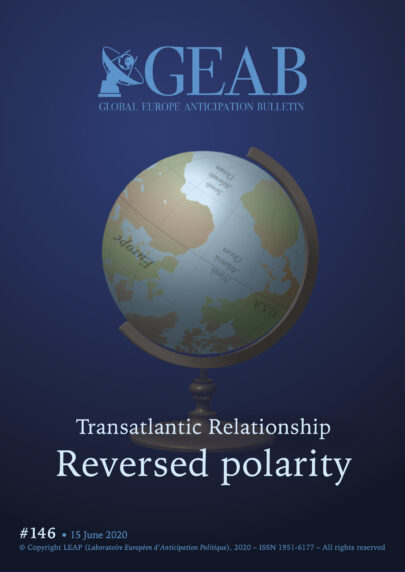GEAB 146

Energy producers, distributors and investors worldwide are currently facing a triple whammy of falling demand, falling capacity and price wars that cannot fail to undermine the international corporate-based energy system that we have all come to rely on. Are countries doomed to repeat the errors of the past, or can the Green Movement work with government to champion a deal based on reduced energy demand and more localised forms of generation? This coming year, running up to COP26 in Glasgow, will be vital to set the stage.
COVID-19 has swept through the world in the last six months, bringing social and financial paralysis on a scale never seen before. In the process it has initiated, or accelerated, many systemic changes in the fields of travel, economics, politics and global medicine that were previously only a distant dream.[1] Following significant declines in the demand for petrol, diesel and aviation fuels, came a glut in supply and a subsequent collapse in international fuel prices.[2] As we look ahead to the ‘World After’ (or perhaps we should say the world with COVID-19!), we must consider how these changes will affect the climate agenda. In particular the ‘Green Deal’ proposed by the EU must be built into a blueprint for the next International Climate Conference – COP26.[3] Will this initiative receive a boost or suffer a setback as the established energy companies struggle to recover their market share in a reduced energy paradigm?
Where we were at the end of 2019
As 2019 drew to a close, everything was looking good for the Green agenda. The European elections had brought in a new centrist alliance of parties and the commission had finally appointed a keen supporter of the proposed Green Deal in the person of Ursula von de Leyen.[4] In the media, the new orthodoxy declared the need for drastic action to reduce carbon emissions and so limit the impact of anthropogenic global warming. To this end, the EU has committed to reach net zero greenhouse gas emissions by 2050.[5] The environmental movement was also getting increased media exposure around the world, fed by a continual stream of weather and climate related disasters. Young people were stepping up and taking a lead in the movement, led by their diminutive Swedish mouthpiece, Greta Thunberg.[6] Extinction Rebellion has been very successful in changing peoples’ perspectives, but its decentralised nature creates problems and these must be overcome if it is to have a clear voice and counter the charge that it is a protest without a plan
Login

Transatlantic 21: The centre of gravity of the transatlantic relationship is shifting towards Europe
Since 2006, the global systemic crisis described by the GEAB has referred to the ‘system’ founded in 1945 in the aftermath of the WW2. Nevertheless, at the heart of this [...]
Last month, we anticipated a risk of derailment of the centuries-old machine of the American elections. With optimism, we hypothesised that an exceptional context could lead to an extraordinary election [...]
As the virus attacks what has been viewed as the core of the Western reactor since 1945, namely America, it is propelling Europe, regenerated by twelve years of reflection, to [...]
In theory, Europe currently seems much more compatible with the multipolar world of the 21st century than the United States. But it still needs to prove it. From 1st July, [...]
Digital data is the new black gold; the adage is familiar, but the stakes involved less so. With the COVID-19 pandemic, the world has achieved a two-year digital transformation within [...]
Oil: Displacement of another centre of gravity China, the largest importer of oil, is about to finalise the security of its energy supply system. Its strategy is based on the [...]

Comments